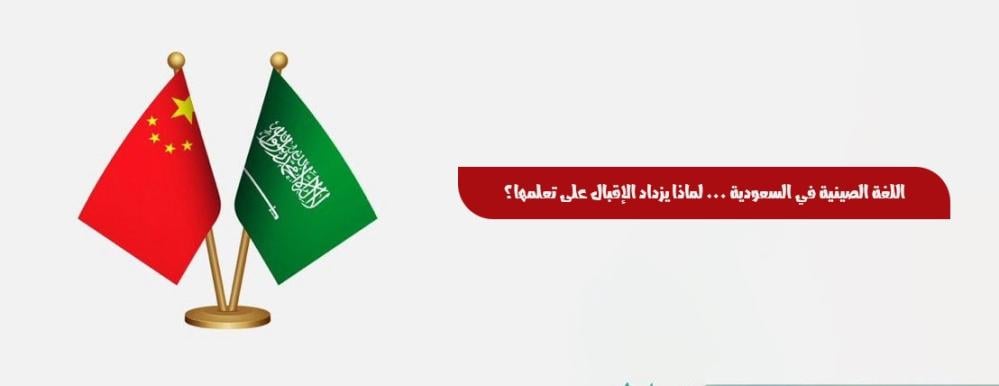
Chinese Language in Saudi Arabia: Why Is Interest in Learning It Increasing?
In recent years, the Chinese language has become a trending topic in Saudi Arabia’s academic and educational landscape. English is no longer the only dominant foreign language; students and parents are realizing that China, with its economic, political, and cultural weight, represents a new gateway to opportunities. With the announcement of Saudi Vision 2030, which aims to diversify the economy and strengthen international relations, the growing interest in learning Chinese confirms that it is not just an additional language but rather a strategic skill for the future.
So why is interest in learning Chinese increasing in Saudi Arabia? And how can this language serve as a new passport for future generations? That’s what we’ll discuss in this article.
1. China and Saudi Arabia – A Growing Economic Partnership
Saudi Arabia is one of China’s largest trading partners in the Middle East. China is the top importer of Saudi oil, while Saudi Arabia is a key partner in the Belt and Road Initiative.
How is this linked to the Chinese language?
- Saudi businesspeople are realizing that mastering Chinese makes it easier to build direct relationships with Chinese partners.
- Students pursuing careers in trade or economics will find Chinese to be a strong competitive advantage.
- Even in fields like technology and renewable energy, China is a leading player, and Chinese has become a bridge for cooperation.
2. The Chinese Language and Saudi Vision 2030
Saudi Vision 2030 aims to diversify sources of income beyond oil by developing sectors such as education, tourism, technology, and international investment.
How does Chinese support this vision?
- Tourism: With the Kingdom opening up to Chinese tourists, having tour guides who speak Chinese has become essential.
- Education: Introducing Chinese as an optional language in some schools and universities enhances cultural and knowledge exchange.
- Investment: Saudi and Chinese investors need a common language to accelerate communication and contracts.
In short, learning Chinese in Saudi Arabia is no longer a luxury but an investment in the future aligned with the nation’s direction.
3. Is Chinese Really That Difficult?
Many people believe Chinese is one of the hardest languages due to its character-based writing system. But in reality, learning it is far from impossible, especially with today’s modern resources.
Advantages of learning Chinese:
- Its grammar is simpler than Arabic or English (no complex verb conjugations).
- Many words are built from meaningful roots.
- Apps like Hello Chinese and Duolingo have made learning more accessible than ever.
Thus, the challenge is not the language itself, but persistence and consistency.
4. Saudis’ Growing Interest in Learning Chinese
In recent years, we’ve seen:
- Chinese introduced in some school curricula.
- Specialized training centers opening for Chinese language learning.
- Rising demand for online Chinese courses.
Parents are now enrolling their children in Chinese language courses not only as a second language, but as a future skill that opens up wide academic and professional opportunities.
5. How Does Chinese Benefit Saudi Children and Youth?
- Academic Opportunities
- Prestigious Chinese universities like Peking University and Tsinghua University offer scholarships for international students.
- Mastering Chinese increases chances of admission.
- Career Opportunities
- With Chinese companies expanding in Saudi Arabia (Huawei, Sinopec), employees fluent in Chinese are in high demand.
- Even Saudi companies now consider Chinese an advantage in recruitment.
- Cognitive Development
- Learning Chinese enhances visual memory due to its unique characters.
- It also strengthens analytical and logical thinking skills.
6. The Role of Training Centers like Gel Alpha in Teaching Chinese
Across the Kingdom, many educational centers now offer Chinese language courses for children and youth.
Example –Gel Alpha Center:
- Foundational courses for children from age 10+.
- Teaching basic Chinese characters and numbers.
- Training on daily conversations (greetings, introductions, essential phrases).
- Continuous follow-up with specialized instructors.
Such programs go beyond teaching a language—they build confidence and develop new communication skills.
7. How to Start Learning Chinese in Saudi Arabia
- Set your goal: Academic, professional, or personal.
- Join training courses: For example, courses offered by Gel Alpha Center.
- Use apps: Duolingo, Hello Chinese, Memrise.
- Practice with native speakers: Online or in student gatherings.
- Be consistent: Learning takes time and patience, but the results are worth it.
8. FAQs
Q: Is Chinese necessary for all students in Saudi Arabia?
A: It’s not mandatory, but it has become one of the most valuable languages for future job markets.
Q: Can children learn Chinese easily?
A: Yes, children have faster language acquisition abilities, making early learning ideal.
Q: How long does it take to learn basic Chinese?
A: With consistent study, 6–12 months is enough to master basic conversations.
Conclusion
Chinese in Saudi Arabia is no longer just an optional skill; it has become part of the country’s strategy to prepare a new generation capable of competing globally. Through Vision 2030 and various educational initiatives, it is clear that investing in Chinese language learning is an investment in the future.
Language is not just a tool for communication—it is a bridge for economic and cultural cooperation, and a gateway to limitless academic and professional opportunities. With training centers like Gel Alpha, the path to mastering Chinese has never been clearer or easier.

